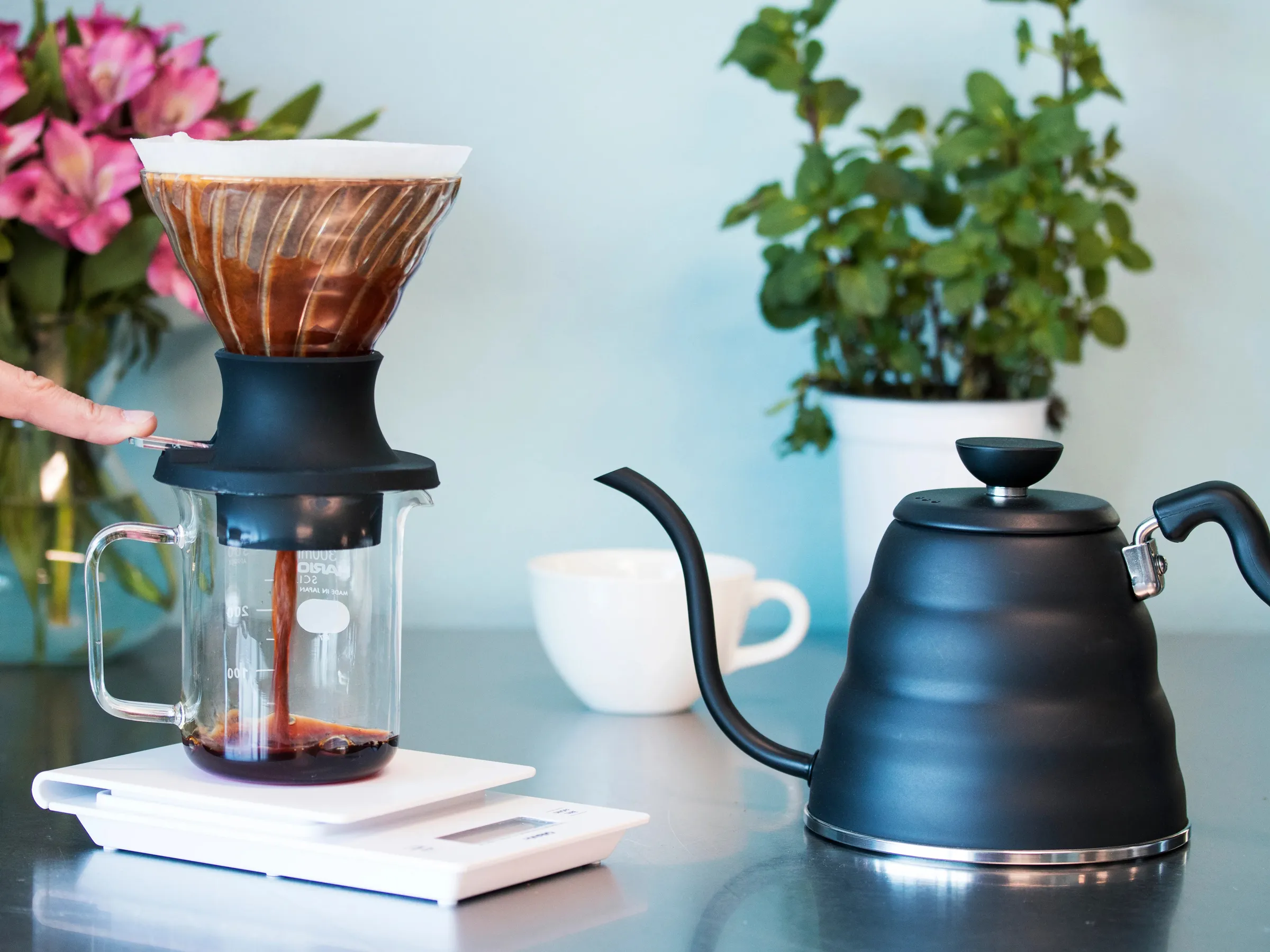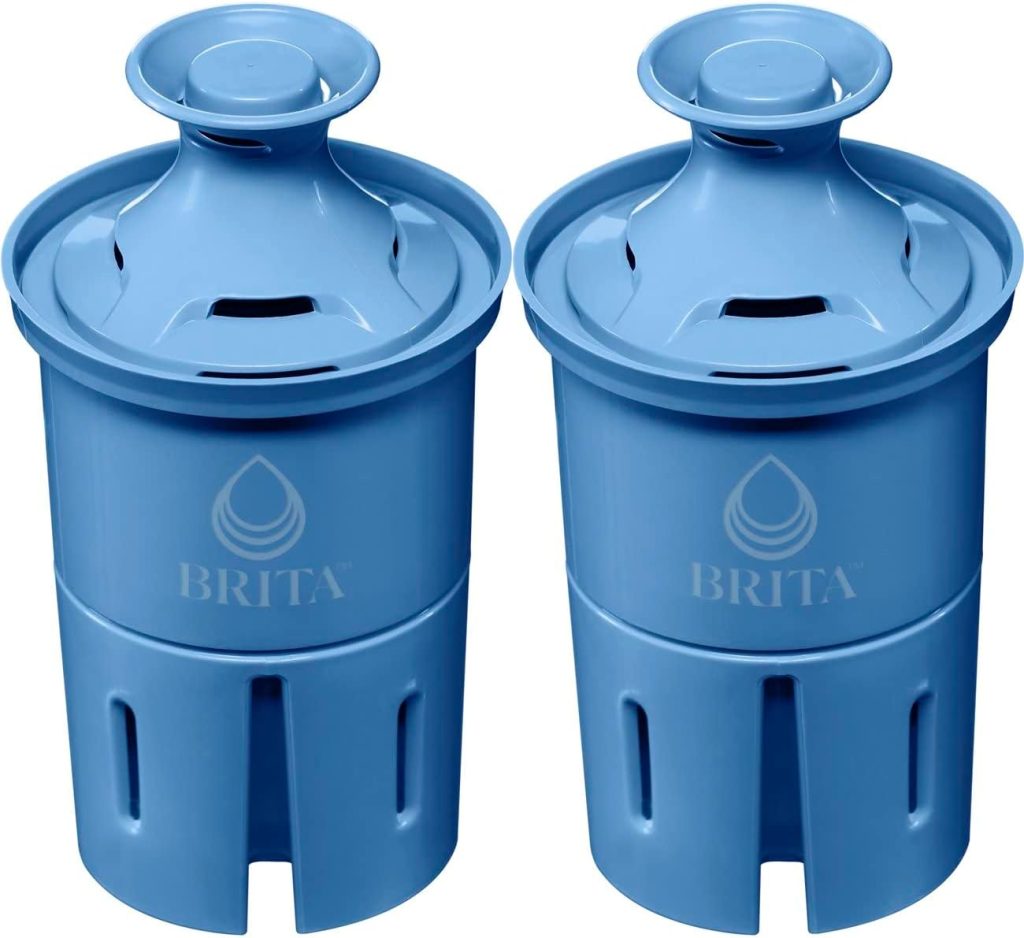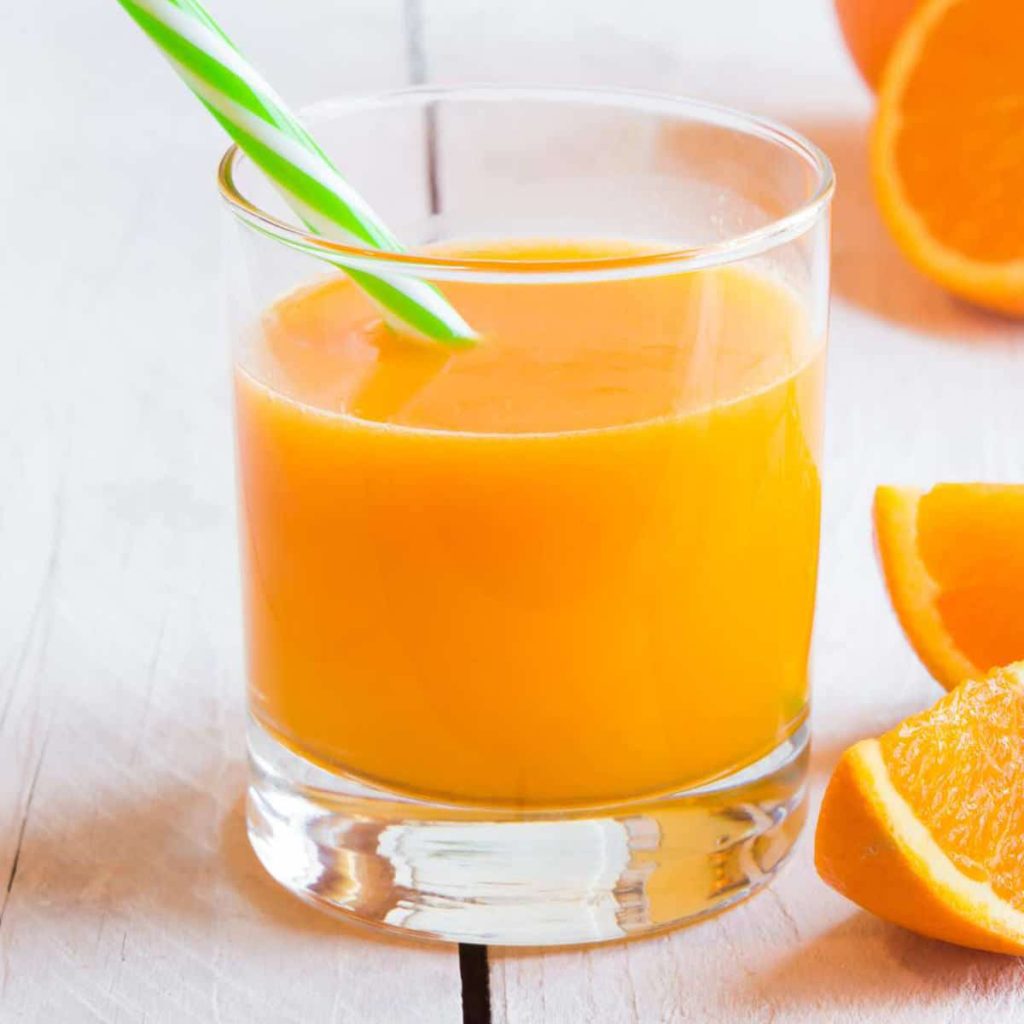
Where LifeStraw, Salt Shakers, Pour-Over Coffee and Orange Juice Pulp find commonality
LifeStraw is a brand that manufactures water filtration and purification devices, designed as straws. These straws remove almost all of waterborne bacteria, microplastics and parasites. Some newer models can remove chlorine and lead. The majority of LifeStraw devices are distributed as part of public health campaigns or in response to complex emergencies by NGOs and organizations that give them away for free in the developing world. Increasingly, however, the LifeStraw is now used by outdoor enthusiasts, with the easy ability to provide clean water anywhere. Using only suction, LifeStraw water filters can provide clean water without the need for batteries or chemical treatment.

Can LifeStraw be used on Shabbos?
The question at hand revolves around the Melacha of Meraked, sifting. One of three Melachos relating to separating mixtures, the act of Meraked refers to pouring a mixture through a strainer to achieve a refined result. Meraked applies to the sifting of mixtures of food, drink, or any random non-food items as well.
For a better grasp of the varying applications, it is necessary to understand the basic framework defining when and how filtering would be permitted.
A word of introduction: When dealing with the laws of Shabbos, it is worth bearing in mind that the concept of Melacha, activity prohibited on Shabbos, is not one of laboriousness. In fact, many prohibited activities, such as turning on a light, are hardly sweat-inducing. The true measure of Melacha is one of creativity. The 39 Melachos represent 39 methods of creating new forms or entities. Just as Hakadosh Baruch Hu’s rest on the seventh day was a rest from the acts of creationism, so too each Shabbos we refrain from any acts of creation.
With this perspective in mind, it becomes possible to understand the parameters of the various Melachos, as whether or not an action constitutes a forbidden Melacha often depends on how much of a productive change was in fact effected. It is with this understanding that the filtering of food or beverages falls into one of three categories:
Category 1: “Tzlulim” – This category refers to something which most people would consider fully edible. Although they might have a preference to eat it after filtering, they would consider it fully fit for consumption as is. A case in point would be orange juice containing pulp. Although there are those who prefer a pulp-free variety, this is merely a matter of preference of taste. As such, straining the juice to remove the pulp is not an act of making an inedible food edible, but rather one of altering the taste of a perfectly edible food. This action is not an action of Meraked, and is entirely permitted. [Note: While this rule applies to most people, if one is particularly finicky about a food to the degree that he absolutely would not eat it without first sifting or filtering, the act of filtering takes on real significance and in his particular case, would likely not be permitted.[1]]
Category 2: “Achurim Kitzas” – Literally translated as “slightly sullied”, this category includes foods that although edible, would not be consumed by most people without first being filtered. An example in this regard would be water taken straight from a clean fresh spring, containing pebbles or sediment. Although drinkable, most people would not drink it without first straining it. Filtering such water is classified as Meraked Mi’Derabanan, a Rabbinic level prohibition, and standard filtering or straining is forbidden. One would be allowed, although perhaps less than ideal, to strain such a mixture in an abnormal manner, by pouring it through a cloth or piece of clothing instead of a normal strainer. It is important to note that when doing so one must be certain of avoiding other potential issues, specifically those of Melaben, laundering, as well Sechita, potential squeezing.
Category 3: “Achurim” – This category, the most severe, refers to a filtering of an inedible mixture. By virtue of filtration, one would be taking an inedible food and render it edible. This category is Meraked Mi’Doraysa, and is forbidden even when done in an abnormal manner.
With that, on to some practical examples…
Brita and similar table-top pitcher filters – In the vast majority of North American metropolitan areas, tap water is perfectly drinkable. Though many might choose to filter for a cleaner taste, the drinkability of the water was never in question. This falls within Category 1, and is completely permitted.

Salt Shakers – There are those who place rice in their salt shaker for the purpose of absorbing moisture. As a result, each time one uses the salt shaker, one is effectively filtering out salt from a salt/rice mixture, an action which would seem to be prohibited.[2] [One can remove the cover of the salt shaker, shake some of the mixture onto a plate or other surface, and then remove some of the salt, provided 1) the salt is picked up and removed, not the rice AND 2) it is for immediate use AND 3) the salt is taken directly with one’s fingers.]

Orange Juice – As mentioned above, the majority of people consider juice with even abundant quantities of pulp to be drinkable without filtering, even if it may not necessarily be their preferred variety. Ergo, straining out the pulp is not an action of making something drinkable, and is entirely permitted.[3]

Pour-over Coffee – A rather intriguing scenario, in this case a small filter is placed over a cup, with ground coffee placed in the filter. Hot water is poured directly over the coffee, which will mix and subsequently filter, coming down into the cup as freshly brewed coffee with no particles. At first glance, this would seem problematic, as the coffee bean and water mixture is completely undrinkable, with the final product made drinkable only by virtue of the filter, something that would seem to fit squarely within Category 3. In truth, however, this is not the case.[4] The initial product is not the mixture, but the clear hot water. The final product is the coffee. Essentially, both initial and final product are fully drinkable. The process, then, is not an act of filtering but rather an act of adding flavor. The purpose is to imbue the water with coffee flavor and caffeine. That which part of the flavoring process involves filtration does not redefine the action. The action is not one of filtration, and is completely permitted[5].
It is critical, however, to understand that this refers only to the Meraked angle. There remains a serious concern in regard to the prohibition of Bishul, insofar as the uncooked coffee beans can be cooked by the boiling water. To permit making coffee, proper caution must be exercised.

Turkish Coffee – Whilst in Eretz Yisroel and the general Middle-East this type of coffee is quite prevalent, in North America the definite majority of coffee drinkers do not drink this coffee, finding the heavy level of sediment quite unpalatable. Although technically drinkable, since the local majority would not consume this beverage without first filtering, this would be classified as Category 2, whereby straining would only be permitted when performed in an abnormal fashion.

LifeStraw – Geared for those hiking in the wilderness, or those in any other situation without potable water, this rather novel innovation consists of an advanced filter, designed as a simple straw. To use it, a person need only dip the straw into any body of water, and sip through the straw as one normally would. Another model, the LifeStraw Go, consists of a water bottle based on the same concept, with the filter imbedded within the straw of the water bottle. Unlike a standard filter, the LifeStraw can filter out pesticides, chlorine, bacteria, parasites, microplastics and more.

In situations where the LifeStraw is being used to filter completely undesirable or even undrinkable water, the set-up would seem to qualify for either Level 3, or at the very least Level 2, and not be permitted for Shabbos usage.
This, however, is not the case.
The Shulchan Aruch provides one notable exception to the above categories, with a ruling that no matter the state of the liquid, if one holds a filter next to one’s mouth and drinks through it, the filtering will always be permitted. The concept here is that only when the filtering leaves one with a tangible result in a cup or bowl or such is the act viewed as an act of filtration. If the liquid or food goes directly into one’s mouth, the action is defined as an act of eating, Derech Achila, and not an act of filtration.[6] The same holds true with the LifeStraw. The method of usage is absolutely identical to normal straw usage, and is certainly viewed as Derech Achila.
As such, usage of this device is completely permitted, no matter how contaminated the source water might be.
[1] כן נוטה דעת הביאור הלכה לחוש לספיקו של הפרי מגדים
[2] הל’ שבת להר”ש איידער מלאכת מרקד אות יד’ בשם הגר”א קןטלר זצ”ל וגם מפי הגרמ”פ זצ”ל וכן בשש”כ בשם הגרש”ז זצ”ל אמנם יש מביאים מהגריש”א זצ”ל שאין זה נחשב ככלי ברירה כלל והוה כלוקח האוכל כבידו
[3] אגרות משה או”ח ח”ד סי’ עד’ מלאכת בורר אות ג’
[4] ע”פ דברי השו”ע סי’ שיט’ סעיף ט’ וכן בסעיף טו’
[5] In contradistinction, a French Press coffee maker consists of a two step process. The bean particles are mixed with water, and then subsequently, in a separate action, the mixture is filtered to remove the particles. The second stage is clearly an act of Meraked, sifting, and is forbidden.
[6] סי’ שיט’ סעיף טז’ “מים שיש בהם תולעים מותר לשתותם על ידי מפה בשבת דלא שייך בורר ומשמר אלא במתקן הענין קודם אכילה ושתייה אבל אם בשעת שתייה מעכב את הפסולת שלא יכנס לתוך פיו אין זה מעין מלאכה ומותר” והוא מדברי הרא”ש בתשובה והנה יש להדגיש בזה דברי הבית מאיר וכן דברי הר”י אבועלאפיא במו”מ עם המהרי”ט צהלון שכתבו דבא הרא”ש לאשמעינן דאע”פ דהנחת בגד ע”ג כלי הוה בגדר ברירה ע”י קנון ותמחוי או אפילו בגדר נפה וכברה ולזה הוצרך הרא”ש להתיר משום דהוה בשעת מעשה שתייה והיינו דאין התירו של הרא”ש מטעם דהוה כבורר מיד אלא היתר חדש דאע”פ דהוה ע”י כלי מ”מ אין זה ברירה כלל אלא מעשה אכילה [ולא דמי להסרת זבוב מאוכל דסו”ס יש שם מעשה תיקון בנפרד ומקודם למעשה האכילה משא”כ אם מפריד במעשה השתייה עצמה] ובאמת כן מבואר היטב בלשון הרא”ש דאין זה ברירה באופן המותרת אלא שאין אנו רואים זה כמעשה ברירה כלל
ומטעם זה יראה פשוט דאף אם המסנן נמצא קצת בעומק בהמשך הקש ולא ממש אצל פיו אין בזה שום חסרון ולא מיבעיא מצד מה שיש לראות כל הקש ככלי אחד אלא אפילו בלא”ה דאין ההיתר כאן מצד שהברירה נעשית מיד ובפיו אלא מצד שמעשיו הוא מעשה שתיה וממילא אין שום חילוק בזה והנה על אף שאין צורך בזה מ”מ יש לציין בנוסף להנ”ל שיטת כמה פוסקים דלא שייך ברירה אלא על התערבות דבר הנראה לעין אבל אם אינו נראה לעין לא שייך בו ברירה רק ענין של תיקון וקיי”ל דאין תיקון מנה באוכלין